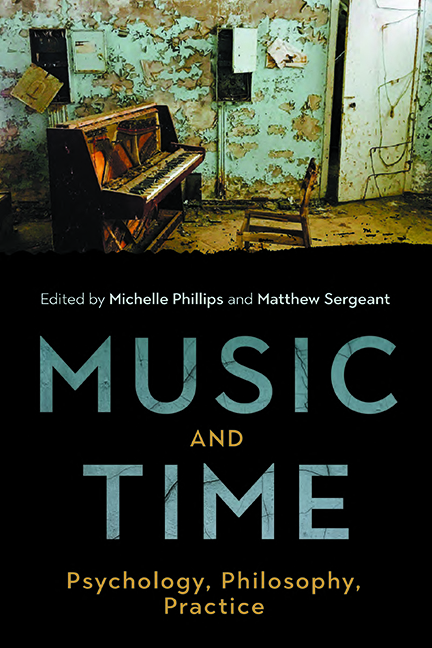10 - Music, Time, and Society
Published online by Cambridge University Press: 07 October 2022
Summary
Introduction
I teach a weekly musicology seminar at 9:00am on a Thursday. For an anthropologist or ethnographer, such a statement contains quite a lot of socio-cultural information about the context in which I may be situated, especially regarding that context's wider notion(s) of time. My own societal context, for example, relates its activities to numerical units of time. Each day and night cycle is divided into twenty-four equal units structured as two sequential twelve-hour subsidiary periods, labelled ante meridiem and post meridiem respectively. A series of seven such cycles becomes a larger unit, called a week, itself a subsidiary of a larger unit called a month, which again is a subsidiary of a larger unit called a year, and so on.
The most important point to be made through such preamble is that the societal conventions by which time is organised – indeed, the societal conventions through which time is socio-culturally understood – are by no means universal. Even my closest geographic neighbours prefer to label the twenty-four hours of the day as a single cycle (their 16:00 versus my 4:00pm), whilst others draw more broadly on emergent circadian rhythms and other worldly phenomena, like the rising of the sun. Both are valid and yet distinct temporal perspectives drawn through a socio-cultural lens.
At its core, the relationship between time and music concerns the temporal experiences of individual subjects in a musical context. This chapter proposes that if we are to fully understand these experiences, we cannot allow ourselves to abstract the subject from their socio-cultural context. Societal conventions of time, as will be demonstrated in the text below, not only reflect notions of time held by the listening subjects that make up that society but also shape them. As Anthony Giddens says, ‘time does not exist merely as something to be measured, but is bound up with contrasts in the very nature of social activities themselves across cultures’. As such, the socio-cultural dimension of music and time must be fed into the discussion of this volume as much as any other area of musicological enquiry.
That there is a discursive relationship between music and its socio-cultural context is, of course, a very well observed aspect of current musicological discourse.
- Type
- Chapter
- Information
- Music and TimePsychology, Philosophy, Practice, pp. 162 - 176Publisher: Boydell & BrewerPrint publication year: 2022



